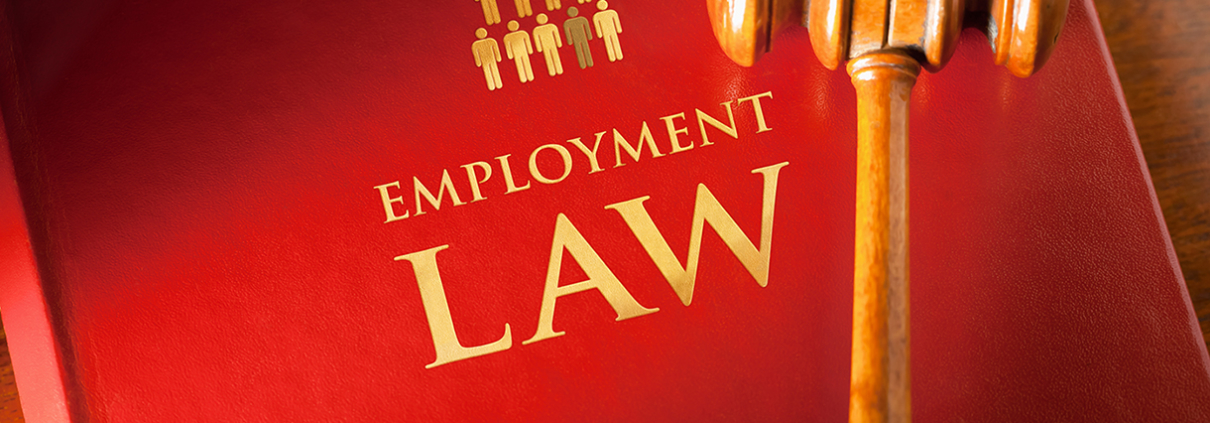Promoting Employee Faithfulness in the Face of Increasing Employment Regulation and an Increasingly Hostile Culture
The Cardinal Newman Society seeks to promote and defend faithful Catholic education. This mission is particularly urgent at a time when Catholic and other religious educators face increasing challenges to remain faithful to their beliefs. Changes in employment law present a fundamental threat to a religious institution’s ability to require faithfulness of its leaders, faculty, and employees. After roughly 50 years of tension regarding government regulation of employment at Catholic schools and other religious employers, focused primarily on the proper boundaries of Church autonomy, the law has taken a more directly hostile turn as sexual orientation and gender identity (“SOGI”) issues have become paramount in the modern pantheon.
On June 15, 2020, in Bostock v. Clayton Cty., Georgia, 140 S. Ct. 1731 (2020), the U.S. Supreme Court found that sexual orientation and gender identity discrimination were encompassed by “sex” discrimination in Title VII of the Civil Rights Act of 1964 (“Title VII”). Within the first 18 months after the Bostock decision:
- federal judges in Indiana and North Carolina allowed Catholic schools to be sued for sexual orientation discrimination under Title VII even though it was undisputed: (1) Title VII allows religious schools to discriminate on the basis of religion; (2) both plaintiffs were fired for sexual behavior that violated Catholic teaching; and (3) both plaintiffs were aware their jobs depended on living in a manner consistent with the Catholic faith;1
- a three-judge panel of the Seventh Circuit Court of Appeals found that a Catholic parish’s music director was a ministerial employee, but he could still sue the Church for hostile work environment claims based on sexual orientation and disabilities;2 and
- the Massachusetts Supreme Court found even though a professor testified that she was required to live, teach, and engage in scholarship consistent with and integrating the Christian faith, she was not a ministerial employee because she did not teach theology or “take students to religious services” and “[s]he never viewed herself or held herself out as a minister . . . .”3
Of course, hope is not lost and God is not mocked. The Church has survived and thrived amid earthly persecution by the Roman empire and communist China. Even in the short-term, several decisions have already been reversed and others are pending on appeal. However, Catholic schools—whether elementary, secondary, or postsecondary institutions—must remain shrewd as serpents and simple as doves in the face of increasingly hostile regulation of employment.
While Bostock was important, thirty-two states and the District of Columbia had adopted statutes protecting SOGI rights before the Supreme Court’s decision. And it does not appear that the dominant culture’s movement away from the Church will soon abate. These dramatic shifts, adopted at lightning speed compared to the laws’ ordinary pace of change, have created new questions and ambiguities that necessitate care and preparation by all institutions that seek to remain faithful.
All of these factors present unique challenges to educational institutions that exist to integrate their Catholic faith and beliefs in all aspects of education and student formation, from academics to activities and relationships outside the classroom. The objective of this Guide is to provide Catholic institutions with a better understanding of the current statutory and regulatory frameworks that may impact their right to hire and fire employees based on faith, and practical tools and strategies to avoid lawsuits and government investigations and to extricate themselves quickly in the event an employment dispute arises.4
The Guide proceeds in three parts. Part I sets out the pertinent federal equal employment statutes and exemptions and discusses state and local employment law and retaliation statutes. Part II describes the exceptions from discrimination statutes mandated by the U.S. Constitution. Part III provides strategies and best practices to strengthen faithfulness within an institution in order to minimize legal risk.5
- See Starkey v. Roman Catholic Archdiocese of Indianapolis, Inc., 496 F.Supp.3d 1195 (S.D. Ind. 2020); Billard v. Charlotte Catholic High School, No. 3:17-cv-00011, 2021 WL 4037431, at *1 (W.D.N.C. Sept. 3, 2021).
- See Demkovich v. St. Andrew the Apostle Parish, Calumet City, 973 F.3d 718 (7th Cir. 2020) rev’d en banc 3 F.4th 968 (7th Cir. 2021).
- DeWeese-Boyd v. Gordon College, 163 N.E.3d 1000, 1002 (Mass. 2021).
- The Guide is focused on employee issues related to hiring, retention, and termination and does not address penumbral issues to religious employment, such as tax issues related to housing allowance or social security elections, employee benefits, or joint employment issues.
- It is important to note that this Guide attempts to provide helpful suggestions regarding certain, limited legal issues. However, its brief length and general nature should prevent any reader from relying on these suggestions for legal advice concerning any specific facts or circumstances. Readers should consult an attorney from CrossCastle or another qualified lawyer concerning specific legal questions and issues that arise.

